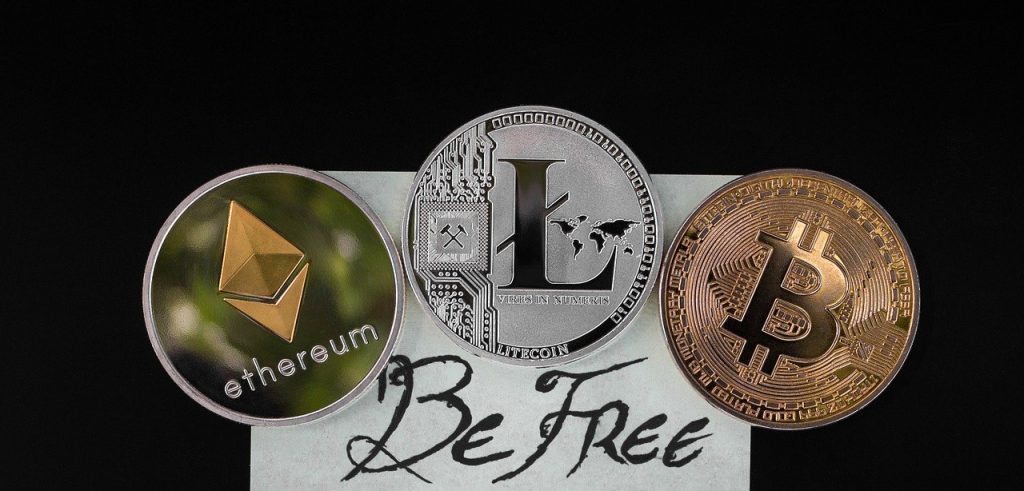
Cryptocurrencies, coins, and tokens are digital assets with no physical representation. They may or may not be backed up by tangible assets. Cryptocurrency is a risky investment. This is due to the fact that it is very volatile, often changing by large amounts in a short period of time.
Blockchain-based cryptocurrencies such as Bitcoin have been around since 2009, when they were first introduced as a new asset class. Most blockchain-based cryptocurrencies, such as Bitcoin, have no central authority, payment processor, or company owner.
Peer-to-peer networks, on the other hand, allow direct communication between users. The decentralized and peer-to-peer nature of bitcoin provides many of its additional benefits.
Many of cryptocurrency’s extra advantages arise from its decentralized and peer-to-peer structure. Let’s take a look at some of the advantages that crypto trading provides to potential investors.
Crypto trade provides anonymity
Cryptocurrency’s potential for privacy is one of its most alluring features, but it isn’t as private as some may expect. There is a permanent record of all transactions on the blockchain. Tracking transactions is feasible if an observer can link a user’s identity with a wallet address on this ledger.
Many cryptocurrency operations are entirely anonymous, however it’s also possible to conduct more anonymous transactions. Outside observers may be baffled by coin-mixing services, which put transactions together in a manner that obscures their identities. By operating a full node, a person increases the anonymity of their transactions by making it difficult for others to determine whether or not the transactions are coming from them.
Advanced users should avoid attempting them, since they may be too tough for people just getting started with cryptography. As a result, despite the fact that total privacy is not one of the key advantages of cryptocurrencies, transactions are still more private than when using fiat money and third-party payment processors.
Diversifying your investment
The non-correlated nature of cryptocurrency has made it a popular asset class. The price movement of cryptocurrencies is generally unaffected by the same variables that drive traditional financial markets like equities, bonds, and commodities.
There can be no correlation between a crypto coin’s price appreciation during the last twelve years and any other asset’s price appreciation. But it’s worth mentioning that in recent years, cryptos have started to move in tandem with equities for brief periods of time on occasion. If you haven’t found your trusted platform for investment yet, Bitcoin Loophole is an option. The Bitcoin Loophole review, written by professionals at a well-known crypto media, reveals that it is genuine, allows for quick registration, and is suited for novices.
Inflation border
Bitcoin, Litecoin, and Monero, among others, have sparked conjecture that they may be great inflation hedges because of their limited supply. Money printing by governments and central banks increases the amount of available money, causing the value of precious goods like gold and silver to soar.
As more and more new dollars vie for fewer and fewer coins, the dollar price of these fixed-supply coins is more likely to climb. Additionally, Bitcoin’s structure is designed to keep these currencies scarce no matter what happens with monetary policy.
No boundaries
National boundaries are irrelevant to cryptocurrencies. Coins may be sent from one nation to another without any additional hassle.
Getting money across international boundaries may take a long time and be expensive when using standard banking institutions. Regulations, penalties, or conflicts between nations may prevent this from happening in certain situations.
Provides a comprehensive financial system
People who don’t have access to the regular banking system may reap some of the advantages of cryptocurrencies. One of the advantages of cryptocurrencies is that everyone may join since it is decentralized and permissionless.
In the crypto ecosystem, there is no need to get approval from any financial body or government. (However, in China, Bitcoin mining is illegal.)
Having a bank account isn’t a need either. Billions of individuals today are “unbanked,” meaning they don’t have any kind of banking account or system. These folks can practically create their own bank with only a smartphone and crypto.
Seamless transactions
A major advantage of crypto is that it may be used to trade value between two parties. It’s possible to accomplish this without the involvement of a third party, which increases the transaction’s freedom and resistance to censorship.
For whatever reason, banks and other payment processors have the power to sever ties with customers. Some journalists, political dissidents, or other people working under authoritarian regimes may find this challenging. It’s almost impossible to ban people from using Bitcoin or most other cryptocurrencies since there isn’t a centralized body in charge of them.
Conclusion
There are a variety of uses for cryptocurrency beyond just being a kind of currency. Cryptocurrencies have introduced social and financial concepts into the mainstream that will be difficult to forget even if they cease to be used as money in the near future. Only a fraction of the social and financial benefits that may be reaped from these emerging technologies have been described so far.
Use value storage, smart contracts, and other crypto services to your advantage. In the near future, they will play a significant role in people’s lives. The better off you’ll be tomorrow if you understand more about what cryptography is actually capable of today. When it comes to cryptocurrencies, you may even be motivated to invent a usage of your own in this still very young and wide-open sector.


